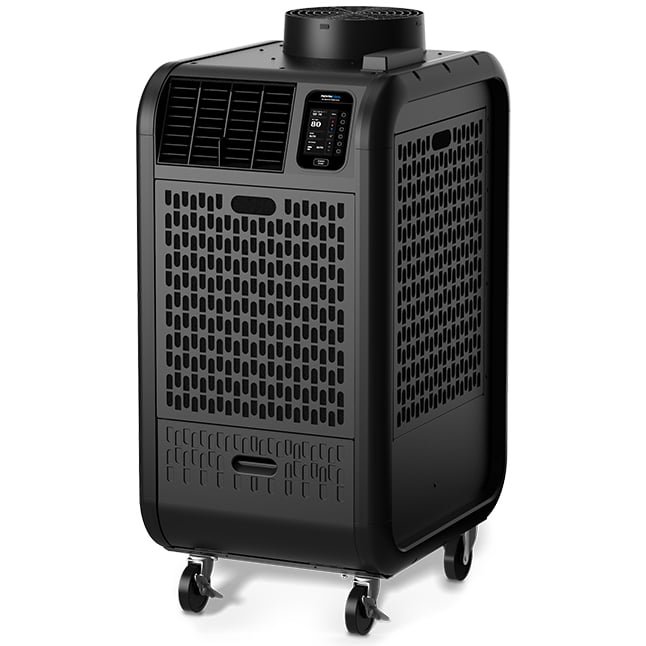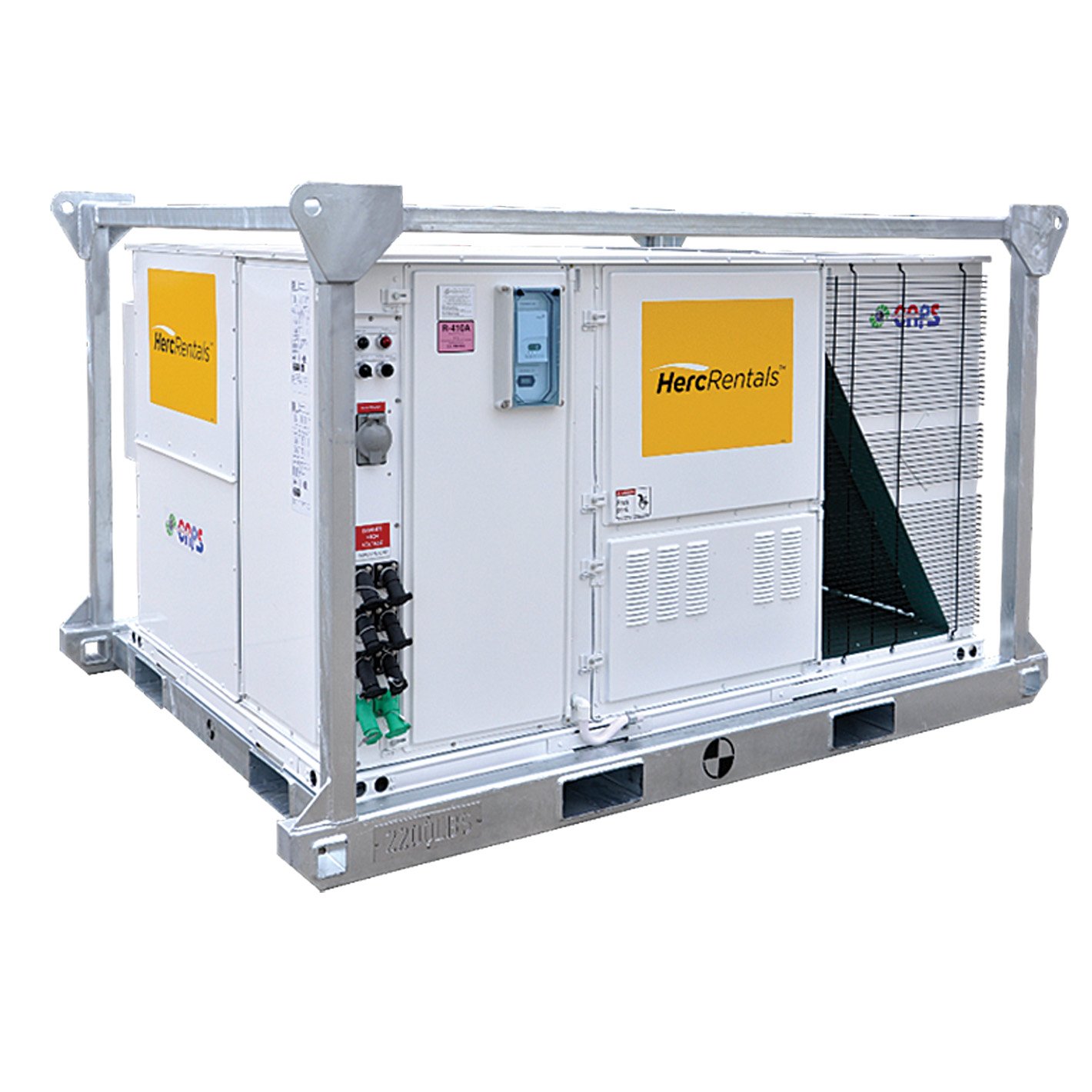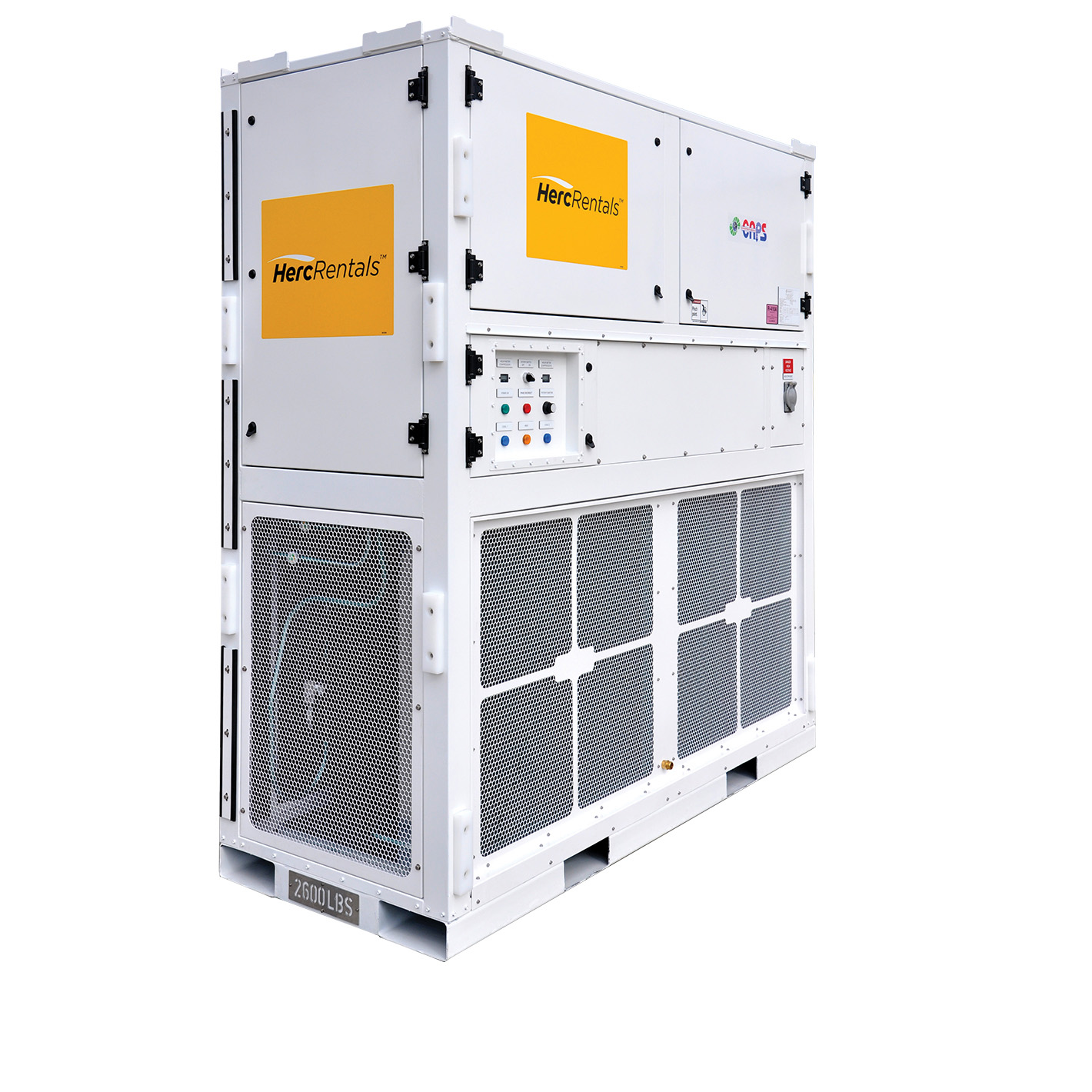Cooling Rental Solutions
Cooling Solutions
Herc Rentals offers temporary cooling equipment for personal comfort, maintaining equipment effectiveness and efficiency, as well as in response to disasters or emergencies.
Our experienced team provides personal comfort cooling equipment for construction, offices, the healthcare and hospitality industry, manufacturing, events, and warehouses.
When it comes to cooling equipment during climate/temperature extremes, Herc Rentals has the gear and expert solutions to ensure our customers avoid long lapses in productivity and maintain or restore safe ambient conditions.
Whether it’s temporary cooling for maintaining a proper environment for interior finishes during new construction; ensuring proper temperatures for concrete curing during winter pours; keeping sensitive equipment used in manufacturing glass, plastics and metal works productive and operational; or keeping fluid moving during pumping or refining operations, our team and equipment can help you get the job done effectively, efficiently, and safely.
Additionally, with a footprint that spans North America and a team of experts at the ready 24/7, we can rapidly respond to any unplanned emergency, HVAC system failure, as well as provide hydronic hot water to facilities during boiler outage or failure.
Services We Offer
Our ProSolutions team and dedicated product specialists are available to design and implement solutions specific to individual application requirements. We also offer turnkey equipment setup, startup/run, teardown and removal as well as daily, weekly, monthly and long-term rental options.
What Do I Need to Know Before Renting Temporary AC?
If you need to rent an air conditioner, there are a few things you should know before calling a rental company.
Temporary Air Conditioner Rental Checklist ✓
- Understand Your Cooling Need
First things first. You need to determine the purpose of your AC rental, how long you’ll need to rent, and if it will be used indoors or outdoors. Do you need a primary cooling source during a construction job? Do you need supplemental cooling during a heatwave? Are you looking just to spot cool small areas instead of a large space?
- Know Your Space
Before you make the call to rent AC, you’ll want to know how much space needs to be cooled. The best measurement to know is the total cubic feet you need covered. While the area of a room is helpful, multiplying by the height of the room gives us a better idea of how much volume is needed. You’ll also want to decide if you need multiple rooms cooled or if it’s just one open area.
- Check Your Outlets
Understanding your power sources is an important part of the AC rental process. While smaller units generally can be plugged into a normal outlet, larger air conditioners may require special outlets or wiring. Most of our units operate on a standard 120V outlet, 15 amp, and 20 amp breakers. Determine how many outlets you have available and how much voltage is available in your building.
- Consider Ventilation
Portable AC does exhaust air as part of the cooling process. The hot air is typically directed out of a cooled space through an exhaust duct. The duct can be vented out of a window, into a drop ceiling, or through a wall. Knowing your options in advance will help the rental company determine the best ducting options for you.
- Know How Much Room You Need
If you are working with limited space, you’ll want to know the size of the unit you’ll be renting. This is especially important if you need to maintain some open space for maintaining walkway areas. When calling a rental company, be sure to tell them if you have any limitations in terms of space, or if you have flights of steps to go up.
- Don’t Skimp on the Details
Don’t forget to share any important information about the space you need cooling. Ask yourself the following questions, as it will better help a rental company assist you:
- Are there a lot of windows in the room?
- How many people are working in the space?
- Do you have a lot of electronic equipment in the space?
These are important facts to share with a portable cooling rental company, as understanding the makeup and operations of your space will factor into the amount of AC needed.
Want to know how much cooling you’ll need? Learn more what a “ton” of air conditioning means or simply use a BTU calculator to determine how much cooling you’ll need.
What is a TON of Air Conditioning?
When it comes to AC units, industry experts often throw around a lot of words that sound pretty complicated. For example, when someone talks about a “ton” of air conditioning, they aren’t referring to weight. Understanding some AC terms can be helpful when it’s time for you to rent. We break down some of the important facts.
What is a BTU?
The British Thermal Unit (BTU) is a measure of the amount of heat required to raise the temperature of one lb. of water by one degree Fahrenheit. It’s a common unit of measurement for air conditioning and heating equipment.
So, What’s a Ton?
A ton has nothing to do with weight in the air conditioning world. A ton of refrigeration is the amount of heat needed to melt a ton (2,000 lb) of ice at 32 degrees Fahrenheit. There are 12,000 BTUs to one ton. Most air conditioners are rated in tons or BTU, so a 4-ton unit is 48,000 BTUs.
Choosing the Best Cooling Option for You
It’s a good idea to understand what kind of cooling you need when choosing to rent a spot cooler. Generally, in a comfort cooling setting, you can estimate one ton of cooling for every 500 square feet (assuming you have a standard 8-foot ceiling). In a more densely populated, cross-ventilated area, we suggest one ton of cooling for every 250 square feet.
Keep in mind that when renting a unit you’ll want to anticipate how many people are working in the area that is being cooled. In general, each individual person generates roughly 600 BTUs.
Use a BTU calculator to determine how much cooling you’ll need. Simply enter the cubic footage of the area.
 Back
Back










